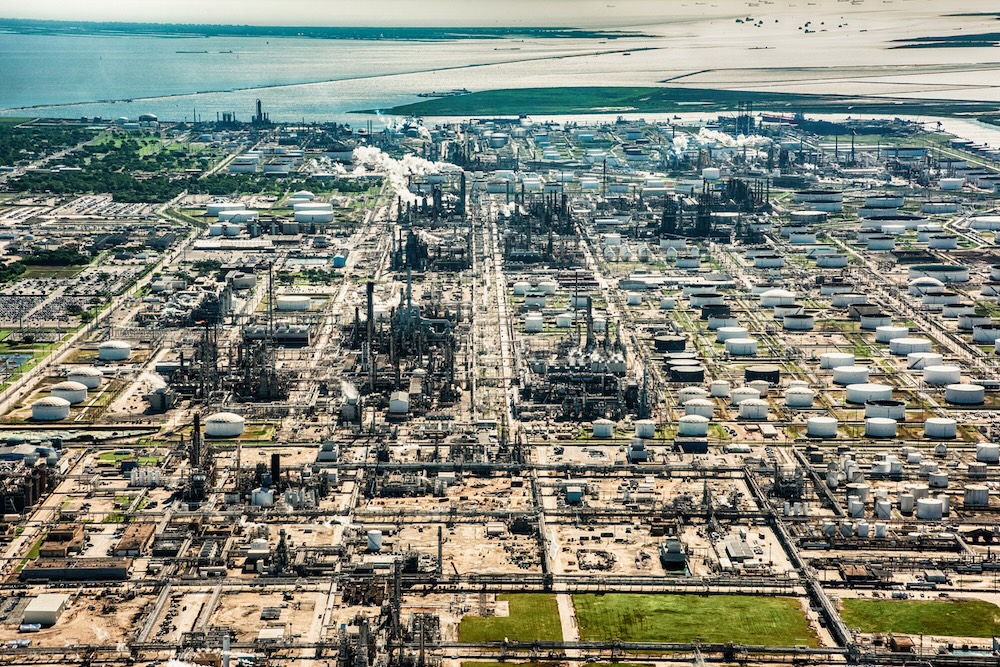
A gas leak at Marathon Galveston Bay Refinery led to an hours-long shelter-in-place for areas of Texas City on December 17. No injuries were reported.
Pump Failure Likely Cause of Sulfur Dioxide Leak
According to officials, a pump failure is likely to blame for the dangerous, sudden release of sulfur dioxide that took place around 8:45 a.m.
At 9 a.m., a shelter-in-place was issued to the industrial area south of Marathon GBR and roads surrounding the facility closed down, including Loop 197 and 519 at SH-146 and 4th Avenue S.
Officials immediately began monitoring the air quality and lifted the advisory around noon. Marathon GBR released a statement shortly thereafter, noting that it had resolved the operational upset that led to a “temporary increase in sulfur dioxide emissions.”
A sudden generation of gas is a common cause of catastrophic refinery accidents and can easily trigger a deadly fire or explosion. When released into the air, high concentrations of sulfur dioxide are also poisonous, impacting the well-being of local communities.
Sulfur Dioxide Leak is Second Texas City Shelter-in-Place of 2023
Sulfur dioxide is a colorless gas or liquid with a pungent, choking odor that causes a range of harmful effects on the lungs and respiratory system.
The same facility released more than 8,500 pounds of sulfur dioxide into the air in June 2023, causing the first shelter-in-place Texas City had seen in over a decade, per the Houston Chronicle. This weekend’s sulfur dioxide leak comes just six months after that.
Marathon Bay Refinery Has History of Deadly Accidents
Marathon’s Galveston Bay Refinery is the second largest oil refinery in the nation, located off the entrance to the Houston Ship Channel about 42 miles from Houston.
The facility handles up to 593,000 barrels of crude oil per day, processing it into gasoline, distillates, aromatics, heavy fuel oil, dry gas, fuel-grade coke, refinery-grade propylene, chemical-grade propylene and sulfur.
Many chemicals used at this refinery and others just like it generate large quantities of gas. When gas is created slowly, it’s unlikely to cause an explosion. But if generated quickly, the vapors can ignite upon exposure to oxygen, triggering an explosion.
Refinery workers face a constant threat of catastrophic fires, explosions, and serious injuries every day they’re on the job given the volatile, combustible nature of the hazardous chemicals and pressurized equipment they work with.
In 2023, a worker at Marathon GBR tragically lost his life in a fire after a seal failed during routine maintenance at the refinery. Another worker was tragically and fatally electrocuted while setting up scaffolding to overhaul equipment months earlier.
The refinery was also home to one of the worst refinery accidents in history. On March 15, 2005, a vent stack at the Marathon Petroleum refinery (known then as the BP Texas City Refinery) ignited, killing 15 workers and injuring hundreds of others.
Undefeated Houston Refinery Accident Lawyers: Call 1-888-603-3636 For a Free Consult.
Our Houston Refinery Accident Lawyers will post an update when additional information becomes available.
If you or a loved one were injured or tragically killed in a refinery accident or explosion, contact our Experienced Houston Refinery Injury Lawyers at 1-888-603-3636 or click here to submit a confidential email through our “Contact Us” form.
All consultations are free, and you won’t owe us a dime unless we win your case.